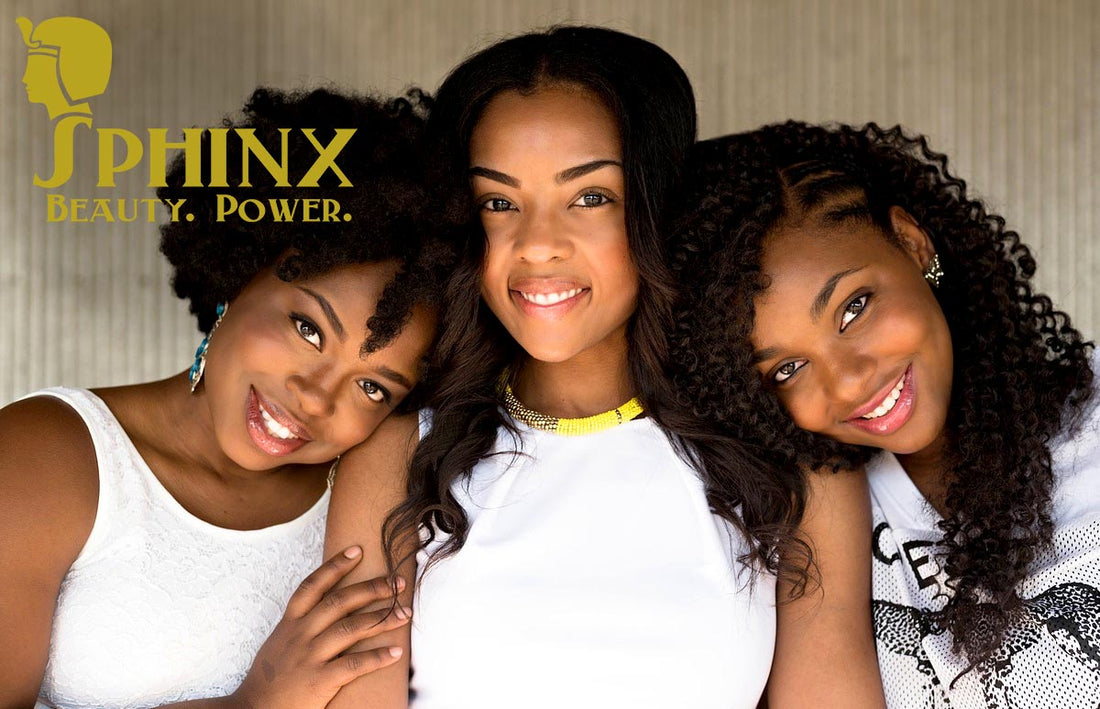History of Black Hair Extensions
Hair in the black community is a complicated, volatile topic. Historically, straight hair and curly/wavy hair have been seen as more socially acceptable. Curly/wavy hair is more acceptable than kinky hair because it’s seen as closer to white. Nowadays, this might seem confusing, but it actually has its roots in slavery. During slavery, black people with lighter skin and curly hair were more likely to be house slaves, whereas black people with darker skin and kinky hair were relegated to the fields. In Africa, eccentric hair styles were a source of pride. When black people came to the Americas, where they did not have the supplies they needed to take care of their hair, slave masters tried to make them feel ashamed about the way they looked by not even referring to their hair as hair. Instead, they might call it “wool,” which was their way of making the slaves feel inferior and inhuman. *
However, the answer to this question isn’t as simple as “because of the European standard of beauty.” I mean, yes, part of the reason black women wear weaves (notice I didn’t say “fake hair” – if you buy it, it’s yours) is because natural black hair is seen as inappropriate and socially unacceptable, but I think that’s only part of the larger story. Weaves do not have to be straight. In fact, I think you’re thinking of wigs, which are placed over the hair and are generally straight or curly. Weaves are often sewn into braids to make the hair longer, and I would argue that braids aren’t related to the European standard of beauty. (Though they are more convenient, because other natural hair styles are seen as “wild” or “unruly,” and they’re also easier to take care of.) Now why would black women want to make their hair longer? Partly because our society says that long hair is beautiful…but also partly because they think it looks nice. I suspect that this has its roots in Africa, though back then people may not have been using weave to style their hair in certain ways. Instead, their hair may have naturally been long enough to style that way.
I think your question represents a bit of a misunderstanding about black women and hair. I think the majority of black women don’t change their hair styles because they want to “look white,” even black women who use perms. Black women do these things because their hair can be, as Sarah Riehl said, very time consuming otherwise. (Though I disagree with her time estimates. The amount of time spent on natural hair can vary based on the person, hair type, and hair style.) Braids are simply convenient, as are perms. And why do black women dye their hair? This question kind of assumes that black women dye their hair “white” colors. Many black women might dye their hair red, brown, black, or even blue! Why do black women have to legitimize everything we do to our hair? We have to explain why we wear our hair natural. We have to explain why we wear our hair permed. We have to explain why we dye our hair or wear weave, whereas our white counterparts can do these things without an assumption that they are self-hating. (Of course, white people in the United States don’t have the same history that black women do, but that doesn’t invalidate my comparison.)
Why do black women do these things to our hair? A few of us wear wigs and perms because of the European standard of beauty. Some of us just like the way they look. And others wear weave and natural hair because we like the way that looks. Black women are a largely diverse group of people, and it’s hard to answer a question like this without glossing over many people’s varied experiences.
Wigs are a great way to protect your natural hair from damage while styling. Regardless of color or texture, they’ve evolved to look more natural than ever, making it one of Hollywood’s most coveted tools for a red carpet-ready look. And unlike hair extensions.


